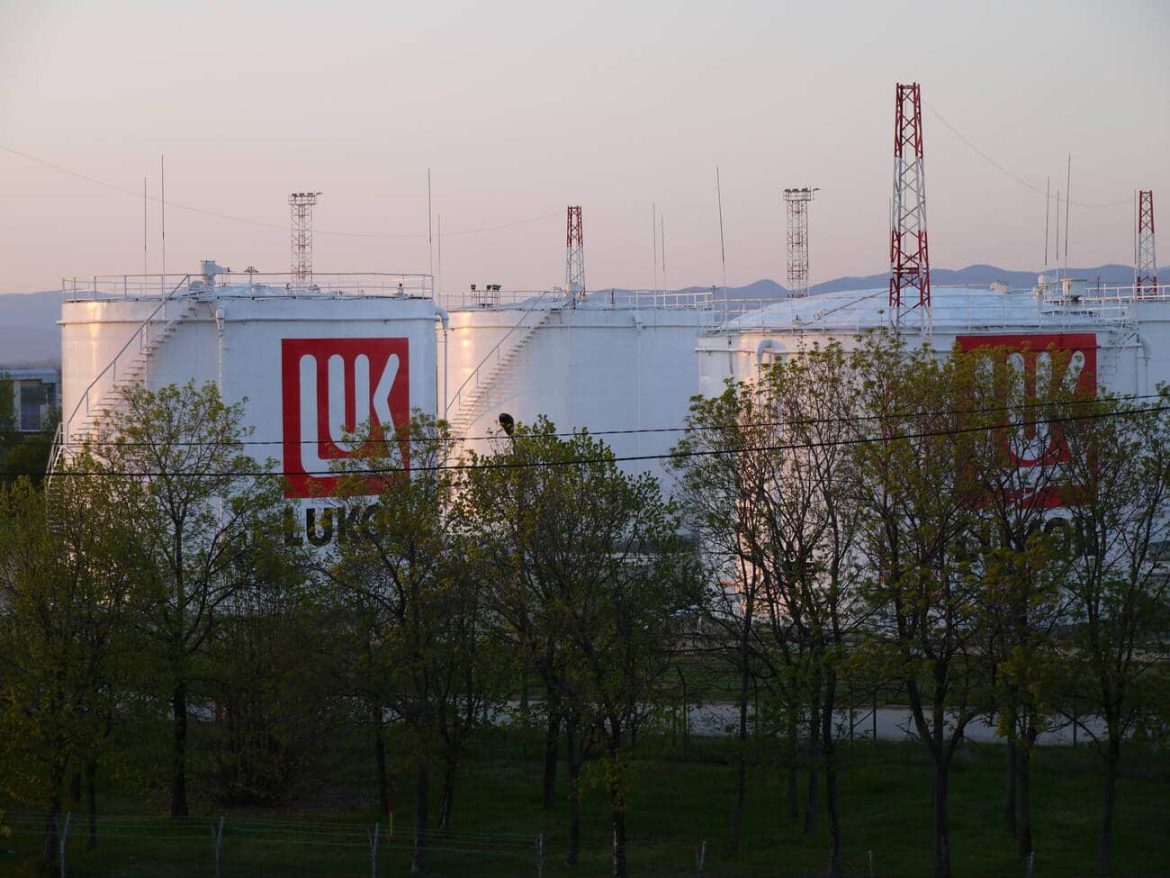The United States has imposed full blocking sanctions on Rosneft and Lukoil, Russia’s two largest oil companies, in the most extensive energy action since the start of the war.
Washington’s move, made under Executive Order 14024, is coupled with time-limited general licences that allow only narrow wind-down activity until 21 November 2025. After that date, dealings with the firms and their majority-owned subsidiaries risk U.S. secondary sanctions.
What this means for the biggest buyers
China and India have been the cornerstone of Russia’s crude exports since 2022. Early reactions suggest the new measures will bite: Chinese state oil majors have suspended seaborne purchases while compliance teams assess exposure. Indian refiners are signalling cuts and demanding deeper discounts to offset higher legal and shipping risks. If these positions hold through November, Russian export volumes face a short-term squeeze and netbacks will deteriorate despite any global price lift.
Pipeline flows to China appear unaffected for now, but the crucial test will be whether state firms in Beijing and the largest private and state-backed refiners in India accept re-papered cargoes channelled via intermediaries. Should they step back for an extended period, Moscow will be forced further into non-dollar settlement, smaller banks, and opaque trading houses, all at a higher cost of doing business.
How circumvention is likely to evolve
Three channels are already in play and will accelerate:
Ownership and trading vehicles. Cargoes can be routed via newly formed traders in third countries, masking beneficial ownership. OFAC’s 50% rule brings any majority-owned affiliate into scope, narrowing room for manoeuvre and raising the risk for counterparties relying on technicalities.
Shadow fleet logistics. Ship-to-ship transfers, intermittent AIS, and older tonnage have supported Russia’s flows. Tighter U.S. enforcement on facilitators and vessels will increase voyage times, insurance premia and detention risks, reducing fleet “productivity”.
Refining and relabelling. Deliveries to third-country refineries allow exports of products no longer classed as Russian. The EU is moving to close gaps such as co-processing and to tighten traceability, which, combined with U.S. measures, raises compliance costs across these chains.
European exposure
Most EU seaborne imports of Russian crude ended in 2022, but residual exposures remain in assets and pipeline-linked supply:
Downstream assets. Lukoil owns the Neftochim Burgas refinery in Bulgaria and the Petrotel refinery in Romania, and holds a 45% stake in the Zeeland refinery in the Netherlands. Sofia has a one-month window—aligned with the U.S. wind-down—to decide the refinery’s future structure to avoid breaching sanctions; options include a sale or special administration. Petrotel has recently undergone maintenance outages; any transfer of control will require lender and regulator comfort. Zeeland’s governance will face similar pressures if counterparties refuse dealings with a sanctioned co-owner.
Central Europe’s pipeline dependence. Hungary and Slovakia still receive Druzhba-route crude. Even if physical flows continue via non-designated intermediaries, financing, insurance and payment frictions will lift costs and narrow supply options. National authorities are coordinating with Brussels on contingency supplies.
 Retail networks. OFAC’s General License 128 permits only limited transactions to maintain or wind down Lukoil-branded service stations outside Russia through 21 November; beyond that, ownership changes are the cleanest solution. The UK has issued a separate wind-down licence expiring 28 November 2025, which will shape decisions in Britain and for UK-linked service providers in the EU.
Retail networks. OFAC’s General License 128 permits only limited transactions to maintain or wind down Lukoil-branded service stations outside Russia through 21 November; beyond that, ownership changes are the cleanest solution. The UK has issued a separate wind-down licence expiring 28 November 2025, which will shape decisions in Britain and for UK-linked service providers in the EU.
Practical steps before the deadline
Map exposure to Rosneft/Lukoil and all entities they own, individually or in aggregate, by 50%+. Treat them as blocked even if not named.
Use wind-down licences only for termination of existing contracts and essential retail operations; avoid new commitments and document payments into blocked accounts where required.
Re-source barrels from the North Sea, U.S., Middle East and non-Russian Caspian routes; test compatibility with refinery slates to minimise yield loss.
Tighten KYC on traders, shipowners and insurers active in high-risk hubs; scrutinise ship-to-ship histories and insurance validity to avoid facilitation risks.
Plan governance changes for affected assets (trusteeship, ring-fencing or divestment) in consultation with national authorities, taking account of evolving EU guidance.
What it means for Russia’s war chest
Oil and gas contribute roughly a quarter of Russia’s state revenue. The sanctions’ fiscal impact will turn on three variables: how long China’s state firms and India’s majors curb purchases; the scale of discounts needed to keep marginal buyers; and the added friction from longer voyages and shadow-fleet costs. A temporary rise in global prices cushions Moscow on a per-barrel basis, but sustained volume losses and deeper discounts would erode net receipts.
Putin’s response
President Putin has described the measures as “serious” but insists Russia will not alter course. Moscow’s line is defiance, coupled with warnings of market disruption. The immediate reaction from buyers suggests the Kremlin will face at least a short period of tighter cash flow and more complex logistics while new workarounds are arranged.
Outlook: The decisive marker is 21 November 2025. If major Asian buyers keep their distance beyond the wind-down and European jurisdictions force governance changes at Lukoil-linked assets, Russia’s export machine will carry on, but at higher cost and with reduced access to mainstream finance and insurance. The sanctions will not end the war; they do, however, narrow Moscow’s options and raise the price of evasion.


 Retail networks. OFAC’s General License 128 permits only limited transactions to maintain or wind down Lukoil-branded service stations outside Russia through 21 November; beyond that, ownership changes are the cleanest solution. The UK has issued a
Retail networks. OFAC’s General License 128 permits only limited transactions to maintain or wind down Lukoil-branded service stations outside Russia through 21 November; beyond that, ownership changes are the cleanest solution. The UK has issued a 